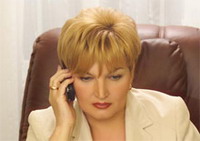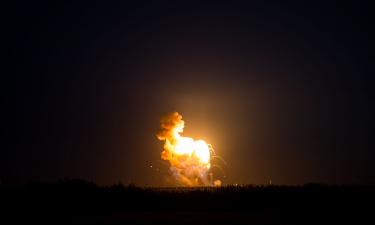Court no longer has right to rule on decree dissolving Ukrainian parliament

The 4-week political lawsuit between Ukraine's president and Prime Minister worsened Thursday for president’s office tried to close the door on the Constitutional Court's involvement in resolving the crisis.
In a surprise move, President Viktor Yushchenko announced late Wednesday that he was canceling his April 2 decree to dissolve parliament and call early elections for May 27 - and replacing it with a new decree that did the same thing but postponed elections until June 24.
The earlier decree "is no longer in force," said Volodymyr Shapoval, Yushchenko's representative to the court. "This means that, in our opinion, there is no basis for continuing consideration before the Constitutional Court."
The legal maneuvering by Yushchenko came as the 18-judge panel entered the first full day of its deliberations into the legality of the presidential order. The move seemed aimed at protecting the president amid concerns that the court would rule that his decree was unconstitutional; at the very least, it could buy the president more time by forcing his rivals to launch a new appeal.
Premier Viktor Yanukovych cut short a trip to Uzbekistan when he learned of the new order, and his allies in parliament accused the president of trying to shove aside the court. "Today, the actions of the Constitutional Court were attacked to make it impossible to rule on the April 2 decree," said Raisa Bohatyryova, head of Yanukovych's faction in parliament.
Yanukovych was pinning his hopes on the Constitutional Court declaring the president's decree unconstitutional.
Both Yushchenko and Yanukovych had pledged to follow the court's ruling, but the president's parliamentary allies have expressed doubt over whether the court - marred by allegations of corruption - could issue a just verdict. Yushchenko earlier sent a letter to the court complaining about alleged corruption on the part of one judge, who denied the charge and told her fellow judges that she would not step down.
The political standoff has plunged Ukraine into its worst political crisis since the 2004 Orange Revolution, when Yushchenko came to power after mass protests against Yanukovych's fraud-marred presidential victory.
Yanukovych returned as premier in August, after his party won the most votes in last year's parliamentary election, capitalizing on widespread disappointment in Yushchenko's slow reforms and bickering among the Orange Revolution allies. The awkward power-sharing between Yushchenko and Yanukovych quickly deteriorated into squabbling.
Yushchenko issued the decree after 11 lawmakers from pro-presidential factions defected to the premier's parliamentary majority, bringing it closer to the 300 vote super majority it needs to override presidential vetoes. He called it a revision of the voters' will.
Subscribe to Pravda.Ru Telegram channel, Facebook, RSS!





